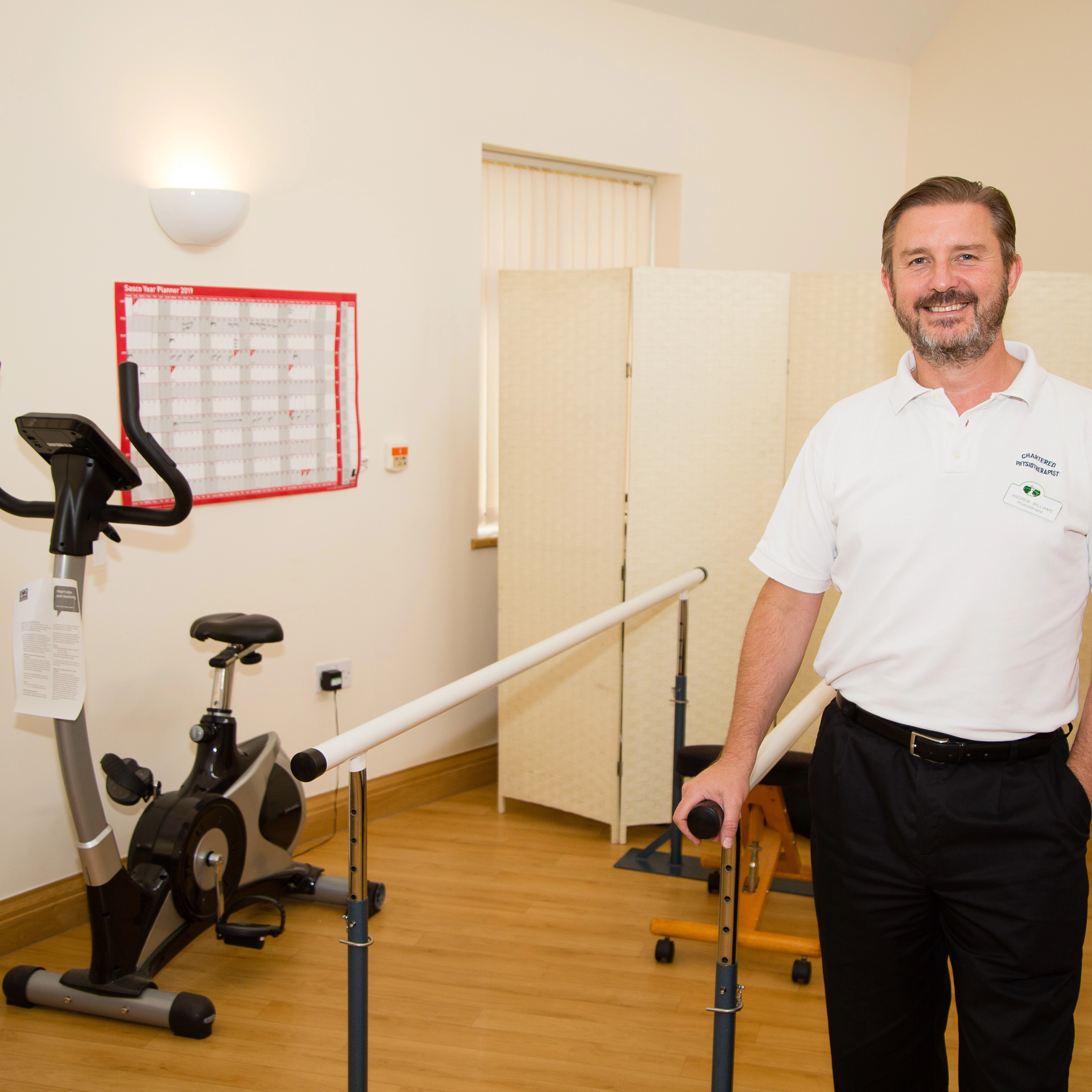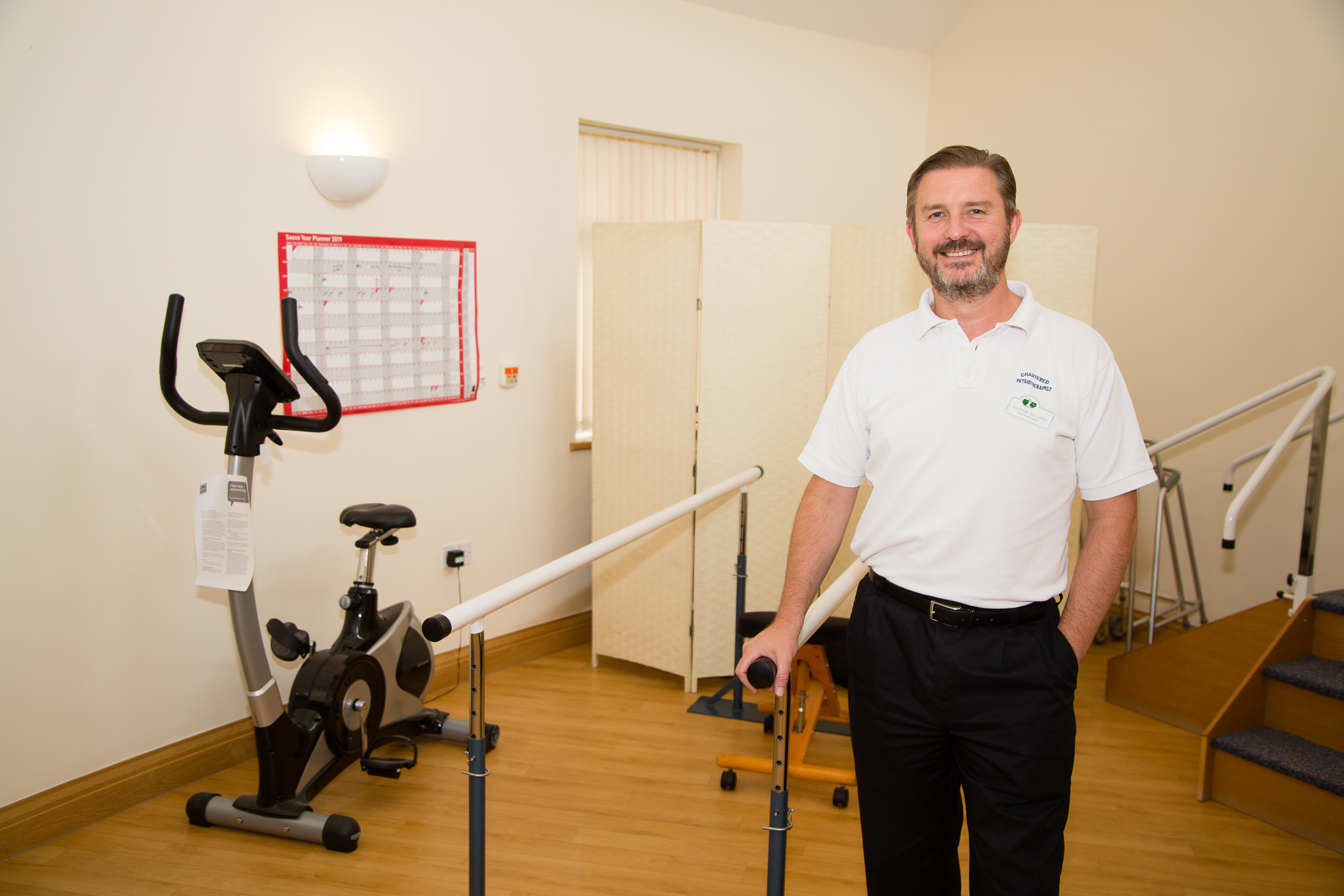
Here at St. Rocco’s we employ a physiotherapist directly, as it’s an important part of our ‘adding years to life and life to years’ ethos. So, we spoke to our physiotherapist Andy Williams, a Liverpool FC fan (but we won’t hold that against him 😊), to find out more why this service is so important.
Assessment and expectations
Andy is an experienced physiotherapist who has worked across different hospital trusts previously before switching to the discipline of palliative care. “I find it much more rewarding, varied and less repetitive than my previous roles,” he explained. “I provide assessment and evidence- based treatments with the aim of optimising patient independence and increasing quality of life’’. Many patients undergo treatments such as chemotherapy, radiotherapy and immunotherapy and have lots of medications to take which can have a big impact on their quality of life. Andy aims to provide our patients with the tools to improve their confidence and to enable patients to manage these challenges more positively.
Andy describes the process once he has received a physiotherapy referral, “We start by providing a thorough holistic assessment. This helps to understand our patient’s symptoms and ability and allows us to agree realistic short goals and to help manage expectations of treatments.’’ Andy reports that, ‘’this can be very challenging as patients often struggle to come to terms with their diagnoses and the subsequent effects on their lifestyle, both from a physical and psychological perspective’’
Range of treatments
Andy explains that “following a physiotherapy assessment a plan of treatments can then be produced and adapted accordingly’’ which can include:
- Prescription of exercises to improve or maintain strength, balance and mobility levels.
- Providing walking aids to maintain activities in a safer manner.
- Fatigue and breathlessness management techniques.
- Acupuncture
Supporting carers
But it is not only the patient that benefits from the physiotherapy assessment as Andy explained. “We also help carers and carer agencies in their important support work. We provide risk assessments and advice on manual handling techniques to provide safer practice’’
Support on all stages of the journey
“Palliative therapy services in the hospice have had to adapt to the effects of the COVID crisis and together with the increased number of referrals being received via the palliative care hub this has placed an increased focus on our services within the community’’ Andy concluded, “Physiotherapy is an important part of the multi - disciplinary team approach in providing specialist palliative care services and we need to be able to listen to patients concerns and involve other health care professionals as and when required. It really makes the job worthwhile knowing you are part of a team providing such vital care’’.



Share Article